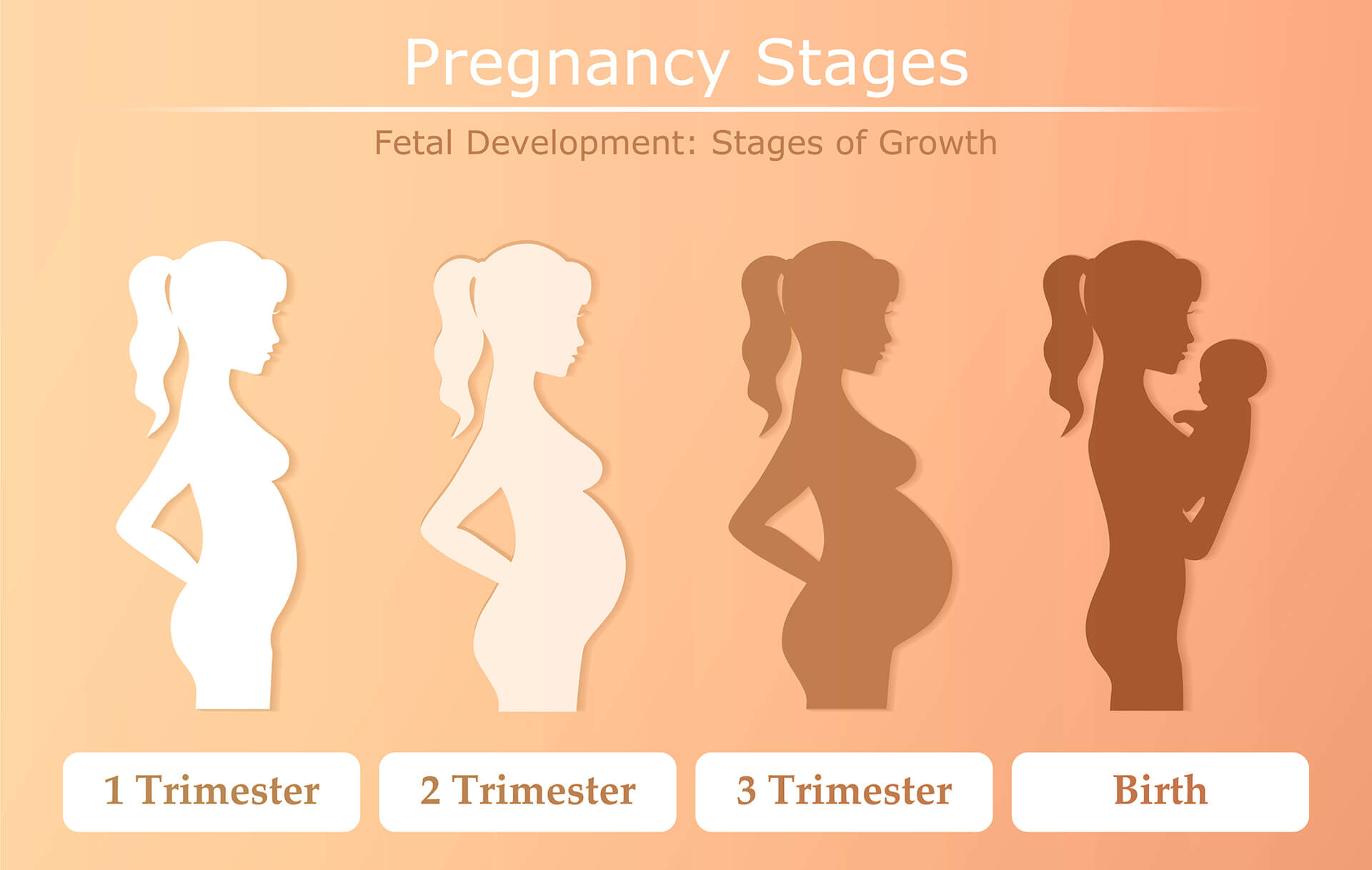
Stages of Pregnancy: A Comprehensive Guide
Pregnancy, a transformative journey spanning approximately 40 weeks, is characterized by distinct stages that mark the development of the fetus and the physiological changes experienced by the mother. Understanding these stages is crucial for expectant parents to navigate this remarkable period with informed decision-making and adequate care.
First Trimester (Weeks 1-12)
- Week 1-4: Conception occurs as the sperm fertilizes the egg, forming a zygote. The zygote travels through the fallopian tube and implants into the uterine lining.
- Week 5-8: The embryo, now consisting of three distinct layers, begins to develop major organs and systems. The heart, brain, and spinal cord form.
- Week 9-12: The fetus, now fully formed, undergoes rapid growth and development. Facial features, limbs, and internal organs become visible.
Second Trimester (Weeks 13-27)
- Week 13-16: The fetus grows significantly in size and weight. Movements become more pronounced, and the mother may begin to feel them.
- Week 17-20: The fetus’s skin becomes covered in a fine hair called lanugo. Fingernails and toenails begin to develop.
- Week 21-24: The fetus develops the ability to hear and respond to sounds. The mother’s uterus expands rapidly, and her belly becomes more prominent.
- Week 25-28: The fetus gains significant weight and fat. The lungs continue to develop, preparing for breathing after birth.
Third Trimester (Weeks 28-40)
- Week 29-32: The fetus’s brain undergoes rapid growth. The lungs mature, and the fetus practices breathing movements.
- Week 33-36: The fetus continues to grow and gain weight. The mother’s body prepares for labor by releasing hormones that soften the cervix and ligaments.
- Week 37-40: The fetus is fully developed and ready for birth. The mother’s body undergoes final preparations, including increased blood flow and uterine contractions.
Physiological Changes in the Mother
Throughout pregnancy, the mother’s body undergoes significant physiological changes to accommodate the growing fetus and prepare for labor.
- Hormonal Changes: Pregnancy hormones, such as progesterone and estrogen, surge to support the development of the fetus and maintain the pregnancy.
- Uterine Growth: The uterus expands to accommodate the growing fetus, stretching from the size of a small fist to a watermelon.
- Increased Blood Volume: Blood volume increases by up to 50% to meet the increased oxygen and nutrient demands of the fetus.
- Weight Gain: The mother typically gains 25-35 pounds during pregnancy, providing nutrients for the fetus and preparing for labor.
- Gastrointestinal Changes: Nausea, vomiting, and constipation are common due to hormonal changes and increased pressure on the digestive system.
- Cardiovascular Changes: The heart rate increases to pump more blood. Blood pressure may slightly decrease.
- Musculoskeletal Changes: The ligaments and joints relax to accommodate the growing uterus and prepare for childbirth.
- Skin Changes: The skin may become darker, develop stretch marks, and experience increased sensitivity.
Prenatal Care
Regular prenatal care is essential for monitoring the health of both the mother and the fetus. Prenatal appointments typically include:
- Physical examinations
- Ultrasound scans
- Blood tests
- Urine tests
- Nutritional counseling
- Education about pregnancy and childbirth
Lifestyle Considerations
Maintaining a healthy lifestyle during pregnancy is crucial for the well-being of both the mother and the fetus. Key considerations include:
- Nutrition: Eating a balanced diet rich in fruits, vegetables, whole grains, and lean protein provides essential nutrients for fetal development.
- Exercise: Regular moderate-intensity exercise, such as walking, swimming, or yoga, can improve circulation, reduce stress, and prepare for labor.
- Sleep: Aim for 7-9 hours of sleep each night to promote physical and mental well-being.
- Stress Management: Pregnancy can be an emotionally demanding time. Engage in stress-reducing activities such as yoga, meditation, or spending time in nature.
- Smoking and Alcohol: Avoid smoking and alcohol consumption, as they can harm the fetus.
- Caffeine: Limit caffeine intake to less than 200 milligrams per day.
Conclusion
Pregnancy is a remarkable journey marked by distinct stages of fetal development and physiological changes in the mother. Understanding these stages and adhering to prenatal care guidelines empowers expectant parents to make informed decisions and ensure the well-being of both themselves and their unborn child. By embracing a healthy lifestyle and seeking regular medical attention, parents can navigate this transformative period with confidence and anticipation.